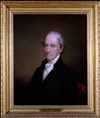ROSVALL, VILJO, railway worker and labour organizer; b. probably 1898, in Finland; d. unmarried November 1929 north of Port Arthur (Thunder Bay), Ont.
Viljo Rosvall came to Canada in the 1920s, one of many socialist or Red Finns fleeing the aftermath of Finland’s civil war (January–May 1918), in which he had fought and which had resulted in a victory for the nationalist or White forces. Tough and resilient, he settled in Port Arthur in northwestern Ontario, where there was a substantial community of Finns working in the lumber industries. He is usually described as a maintenance man for the Canadian Pacific Railway, but he also became an organizer for the Lumber Workers’ Industrial Union of Canada. By 1929 this union, the most prominent one in the region, was largely Finnish in membership and was dominated by the Communist Party of Canada.
In October 1929 the LWIUC called a strike at Shabaqua, some distance west of Port Arthur. The strike does not seem to have been going very well, so the decision was made to try to extend it to the camps of the Pigeon Timber Company Limited on Onion Lake. The jobber (foreman) there was Leonard A. Mäki, a conservative White Finn known for his hostility to the union. Rosvall and Janne Voutilainen, a trapper who seems to have accompanied him as a guide, set off on 18 November to walk to one of the camps, at the north end of the lake. A few miles short of their destination they came across Mäki and some of his men at a supply depot, preparing for winter cutting operations. Mäki would later claim that he called the two over to warm their hands, warned them about the precarious state of the ice, and last saw them walking up the lake. They were never seen alive again.
From the moment of their disappearance, the Red Finn community was convinced that they had died at the hands of Mäki or his men. An investigation by the Ontario Provincial Police was demanded, and Jacob Laurence Cohen*, a lawyer from the Canadian Labour Defence League in Toronto, was engaged to secure an official inquiry. The OPP conducted a cursory investigation and concluded that the men must have drowned.
On 19 April 1930 the body of Voutilainen was discovered, floating in shallow water at the north end of Onion Lake. Rosvall was found on the 23rd, half a mile away, in a stream described as no more than four feet deep. Rumours spread that both bodies bore marks of violence, and that one or both of them had bullet holes in the head. Autopsies were performed and inquests resulted in similar verdicts: accidental death by drowning. Cohen, who represented the union at Rosvall’s inquest, on 5 May, concluded that “there seemed to be an inclination on the part of the public and official witnesses to minimize any facts which would tend to cause any doubts as to the findings on the doctor’s post mortem.” Whatever the truth, there can be no doubt that the official verdicts were reached with haste and despite circumstantial evidence that suggests, if it does not prove, foul play. The men had been buried on 28 April in Riverside Cemetery in the largest funeral in Port Arthur’s history.
Their deaths came to be seen as a defining moment in the history of the Finnish community at the Lakehead, a symbol of the deep ideological division with that group. Though the LWIUC, and the Finnish Canadian left in general, slid into a period of decline, Rosvall and Voutilainen continued to be hailed as martyrs. In 1992 they were inducted into the Canadian Labour Congress Hall of Fame in North York, Ont.
The author has some recollections, on tape, of relatives and friends of participants in the events surrounding the disappearance and deaths of Rosvall and Voutilainen.
Lakehead Univ. Arch. (Thunder Bay, Ont.), Thunder Bay Labour Hist. Project, directed by Jean Morrison (taped interviews). Multicultural Hist. Soc. of Ont. (Toronto), Finnish coll. (taped interviews). NA, MG 30, A94, 1, file 10. Canadan Uutiset [Canadian News] (Port Arthur [Thunder Bay]), 28 Nov. 1929; 24 April, 1, 8 May 1930. Daily Times-Journal (Fort William [Thunder Bay]), 22 Nov. 1929; 21–23 April, 6 May 1930. Industrialisti [Industrialist] (Duluth, Minn.), 27 Oct., 11 Dec. 1929; 30 April 1930. Metsätyöläinen [Lumberworker] (Sudbury, Ont.), no.3 (1930); no.7 (1931), no.10 (1932). News-Chronicle (Port Arthur), 21, 27 Nov., 18 Dec. 1929; 21–23 April, 6 May 1930. Vapaus/Liberty (Sudbury), 16, 18, 27 Nov., 4 Dec. 1929; 21, 28–29 April 1930. Ian Radforth, Bushworkers and bosses: logging in northern Ontario, 1900–1980 (Toronto, 1987). Satu Repo, “Rosvall and Voutilainen: two union men who never died,” Labour (St John’s), 8/9 (1981–82): 79–102
© 2005–2024 University of Toronto/Université Laval
Cite This Article
Peter Raffo, “ROSVALL, VILJO,” in Dictionary of Canadian Biography, vol. 15, University of Toronto/Université Laval, 2003–, accessed April 19, 2024, http://www.biographi.ca/en/bio/rosvall_viljo_15E.html.
The citation above shows the format for footnotes and endnotes according to the Chicago manual of style (16th edition). Information to be used in other citation formats:
| Permalink: | http://www.biographi.ca/en/bio/rosvall_viljo_15E.html |
| Author of Article: | Peter Raffo |
| Title of Article: | ROSVALL, VILJO |
| Publication Name: | Dictionary of Canadian Biography, vol. 15 |
| Publisher: | University of Toronto/Université Laval |
| Year of publication: | 2005 |
| Year of revision: | 2005 |
| Access Date: | April 19, 2024 |





